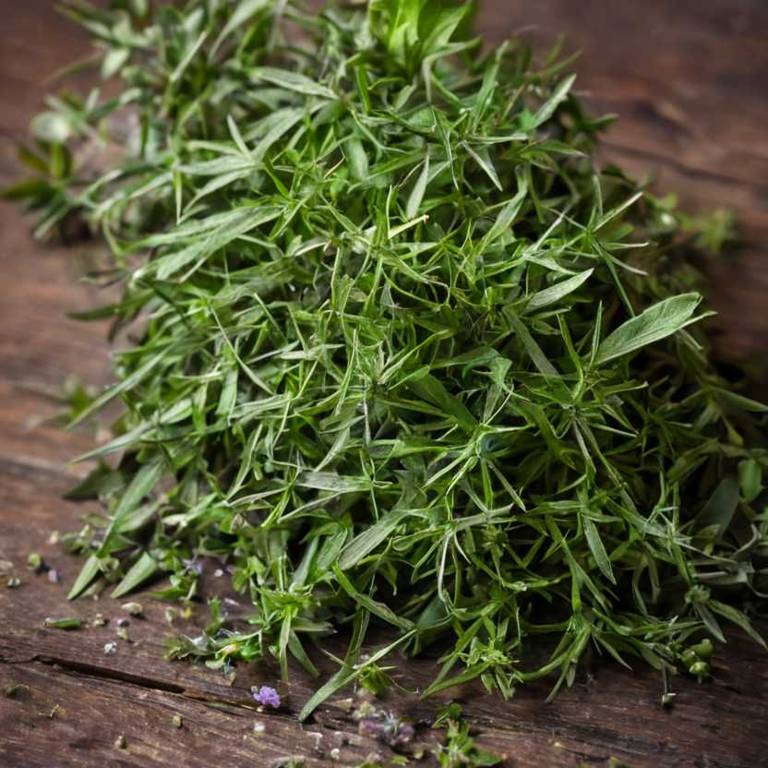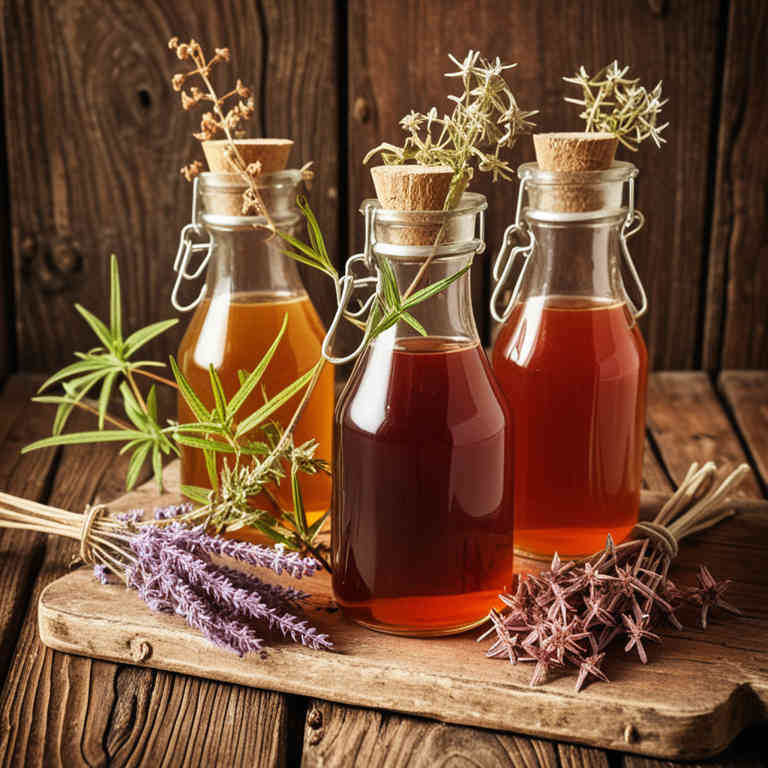10 Best Hyssopus Officinalis Preparations

The best medicinal preparations of Hyssopus officinalis are teas, decoctions, tinctures, essential oils, and syrups, each offering unique benefits for health and wellness.
Teas made from dried hyssop leaves are commonly used to soothe respiratory ailments and promote digestion.
Decoctions, which involve simmering the herb in water, are effective for extracting its deeper medicinal properties.
Tinctures provide a concentrated form of the herb, often used for its antiseptic and expectorant qualities.
Essential oils derived from hyssop are valued for their aromatic and therapeutic properties, often used in aromatherapy and inhalation treatments.
Syrups made from hyssop are traditionally used to ease coughs and support respiratory health.
Below there's a list of the 10 best herbal preparations of hyssopus officinalis for medicinal purposes.
1. Teas
Hyssopus officinalis teas is commonly used to alleviate respiratory conditions, digestive issues, and as a natural remedy for cold and flu symptoms.
The most common medicinal uses include treating coughs, bronchitis, sore throat, indigestion, and nausea. It is also used to promote oral health and reduce inflammation. The bioactive constituents responsible for its medicinal properties include essential oils such as thymol and carvacrol, which have antimicrobial, antispasmodic, and expectorant effects.
Additionally, flavonoids and tannins contribute to its anti-inflammatory and digestive benefits.

2. Decoctions
Hyssopus officinalis decoctions is commonly used to treat respiratory and digestive ailments, as well as to promote oral health.
These decoctions are often employed for conditions such as coughs, bronchitis, sore throats, and indigestion. They are also used in traditional medicine to relieve headaches and improve circulation. The bioactive constituents responsible for these effects include flavonoids, tannins, essential oils, and phenolic compounds.
These compounds possess antimicrobial, anti-inflammatory, and antioxidant properties, contributing to the plant's therapeutic value.

3. Tinctures
Hyssopus officinalis tinctures is commonly used to treat respiratory conditions, digestive issues, and as a mild sedative.
These tinctures are often employed for alleviating symptoms of coughs, bronchitis, and asthma due to their expectorant and anti-inflammatory properties. They are also used to relieve digestive discomfort such as bloating and indigestion. The bioactive constituents responsible for these effects include essential oils like thymol, carvacrol, and pinene, as well as flavonoids and phenolic compounds.
These components contribute to the plant's antimicrobial, antispasmodic, and bronchodilatory actions.

5. Syrups
Hyssopus officinalis syrups is commonly used to treat respiratory conditions such as coughs, bronchitis, and sore throats due to its expectorant and antimicrobial properties.
The syrup is also used to alleviate digestive issues like bloating and indigestion, and it may help reduce inflammation in the respiratory tract. Common ailments treated with this preparation include cold symptoms, asthma-related bronchial spasms, and oral infections. The bioactive constituents responsible for its medicinal effects include essential oils such as thymol and carvacrol, which have antiseptic and anti-inflammatory properties.
Additionally, flavonoids and tannins contribute to its soothing and healing effects on the mucous membranes.

6. Mucillages
Hyssopus officinalis mucillages is commonly used to treat respiratory and digestive ailments due to its soothing and anti-inflammatory properties.
The mucillages are often employed in herbal remedies for conditions such as coughs, bronchitis, and gastrointestinal discomfort. They are also used to alleviate inflammation and irritation in the throat and digestive tract. The bioactive constituents include mucilage polysaccharides, flavonoids, tannins, and essential oils, which contribute to their demulcent, antimicrobial, and anti-inflammatory effects.
These components work together to provide relief and support healing in various health conditions.

7. Capsules
Hyssopus officinalis capsules is commonly used to treat respiratory conditions, digestive issues, and as a natural remedy for anxiety and stress.
The most common medicinal uses of this herbal preparation include alleviating symptoms of coughs, bronchitis, and asthma, as well as aiding digestion and reducing inflammation. It is also used to support oral health and freshen breath. The bioactive constituents responsible for its medicinal properties include essential oils such as thymol and carvacrol, which have antimicrobial, antispasmodic, and anti-inflammatory effects.
Additionally, the plant contains flavonoids and tannins that contribute to its therapeutic benefits.

8. Lozenges
Hyssopus officinalis lozenges is commonly used to alleviate respiratory conditions such as sore throat, cough, and bronchitis due to their anti-inflammatory and antimicrobial properties.
These lozenges are also used to treat digestive issues like indigestion and bloating, and they may help in reducing menstrual cramps. The most common medicinal uses include soothing throat irritation, supporting respiratory health, and aiding in digestion. The bioactive constituents responsible for these effects include flavonoids, tannins, essential oils, and volatile compounds such as thymol and carvacrol, which contribute to its antimicrobial, antispasmodic, and expectorant properties.
These components work synergistically to provide the therapeutic benefits associated with hyssopus officinalis lozenges.

9. Oils
Hyssopus officinalis oils is commonly used to treat respiratory conditions, digestive issues, and as a natural remedy for colds and coughs.
The essential oil derived from this plant is known for its expectorant and antiseptic properties, making it effective in alleviating symptoms of bronchitis, asthma, and sinus congestion. It is also used to improve digestion, relieve gas, and reduce inflammation in the gastrointestinal tract. The bioactive constituents responsible for these medicinal effects include monoterpene hydrocarbons, phenols, and flavonoids, which exhibit antimicrobial, anti-inflammatory, and bronchodilatory activities.
Additionally, the oil may have antispasmodic properties that help in easing muscle tension and promoting relaxation.

10. Creams
Hyssopus officinalis creams is commonly used to treat respiratory and skin conditions due to its antiseptic, anti-inflammatory, and expectorant properties.
These creams are often applied for ailments such as coughs, bronchitis, and skin infections like eczema or fungal infections. The bioactive constituents responsible for these effects include essential oils like thymol and carvacrol, as well as flavonoids and tannins, which exhibit antimicrobial, antioxidant, and anti-inflammatory activities. Additionally, the plant's compounds may help soothe irritation and promote healing in the respiratory and dermatological systems.
Hyssopus officinalis creams are also believed to support immune function and reduce symptoms of colds and sore throats.
